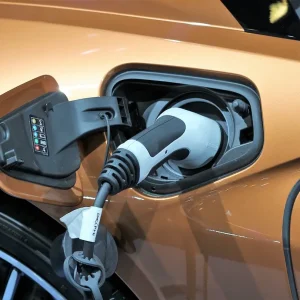The UK Government’s planned ban on new petrol and diesel cars has been pushed back from 2030 to 2035.
The move was announced by Prime Minister Rishi Sunak, who said that more time was needed to prepare for the transition to EVs, citing concerns about the upfront cost impact on families and practicalities for small businesses.
Reacting to the announcement, Association of Fleet Professionals (AFP) chair Paul Hollick said that the fleet sector was generally unhappy with the change.
He said: “While some of our members will be pleased about this because it takes the pressure to electrify away for the time being, the reaction that we are seeing across the fleet sector to this news is largely negative.
“The motor industry and their fleet customers have invested billions towards meeting the 2030 electrification deadline and while there are serious operational issues that need to be tackled, especially when it comes to electric vans, the assumption within our membership was that the government would need to provide more support, not move the goalposts.
“The overwhelming feeling is probably one of irritation. Fleets have done some incredible work when it comes to electrification and it feels as though the can has been kicked down the road in a fairly arbitrary fashion by a government that sees this move as politically expedient.”
Hollick warned that there were a range of potential dangers following the announcement.
He said: “The value of existing EVs may be negatively affected; investment in charging infrastructure may fall away; and there may just be something of a manyana environment around electrification for the next few years.
“However, this must be resisted and it is especially important the local authorities are properly funded to ensure the installation of on-street chargers becomes widespread.”
Giving his reaction to the announcement, BVRLA chief executive Gerry Keaney said the response from the rental and leasing industry body’s members would be mixed – but warned that confidence in future government strategies could be undermined.
He said: “Today’s announcement will frustrate many while offering relief to others. Those that have made huge financial and strategic investments in this technology and mobilised their customers and workforces for decarbonisation will be worried that Government is applying the brakes.
“Others will be grateful for the extra breathing space this delay provides. They will be hoping that it gives more time for costs to come down and consumer attitudes to change.
“We await the further details that will show the true impact of today’s announcement. It is important that progress isn’t paused and momentum can be maintained. Either way, everyone is likely to have less trust in the government’s Net Zero strategy and will think a lot harder before committing to any of its future strategies or roadmaps.”
Giving his reaction, Society of Motor Manufacturers and Traders chief executive Mike Hawes said he was reassured that the ZEV mandate – which will set targets for increasing numbers of EVs to be sold by each manufacturer from next year – would still go ahead, but warned that pro-EV incentives must also be offered.
He said: “The automotive industry’s commitment to a zero-emission new car and van market remains unchanged. Net Zero cannot be achieved without this sector’s decarbonisation.
“The Prime Minister has confirmed that a mandate to compel the sale of EVs – the single biggest mechanism to deliver Net Zero – will be published shortly, starting in January 2024.
“Manufacturers will continue to put innovative new models on the market but consumers need encouragement to buy more than ever. Today’s announcement must be backed up with a package of attractive incentives and measures to accelerate charging infrastructure to give consumers the confidence to switch. Carrots move markets faster than sticks.”
Vehicle Remarketing Association chair Philip Nothard said: “While it is fair to say that within remarketing, there are many sceptics who have serious doubts about the present viability of EVs in the used car market, almost everyone in the sector has still been working towards the 2030 deadline in a diligent and committed manner, often making substantial investments along the way. The government’s move today has, from the feedback we’ve seen, left many of those people feeling confused and resentful.
“The government’s argument is that this five-year delay will allow more time for electrification to take place and reduce costs to private motorists, but that shows a fundamental misunderstanding of how the motor industry works. Many or most of the decisions about the cars and vans on sale in the UK in 2030 have already been finalised, and have been made based on global factors.
“What the UK Prime Minister has done today will change little in terms of the new and used cars being sold here during the next decade or more.
“In the shorter term, it is possible that this move will bring more disruption to the values of EVs, purely because buyers will be confused about where the market is heading which, in turn, will reduce the appetite for electrification, creating a kind of negative feedback loop.”





